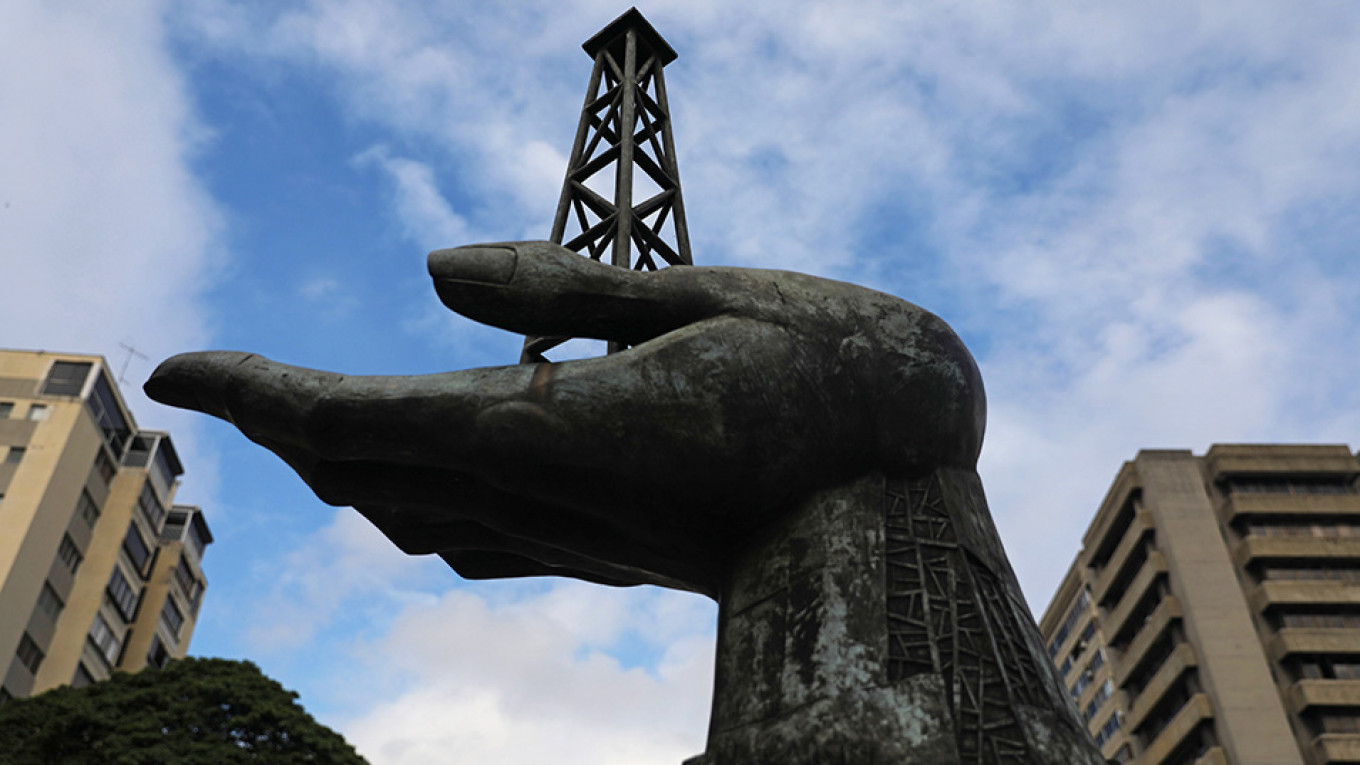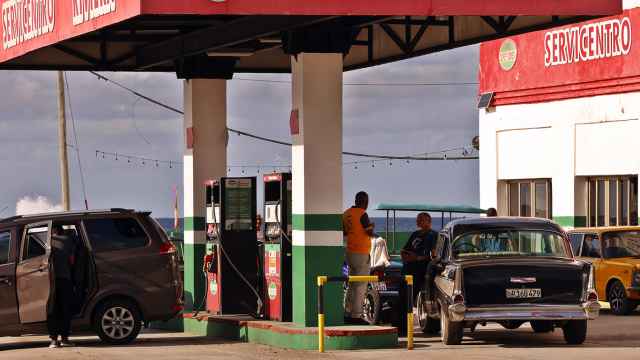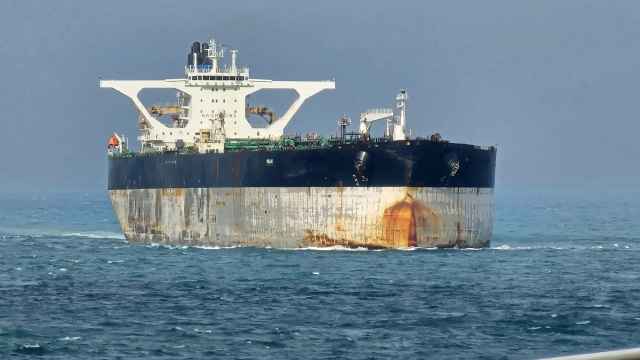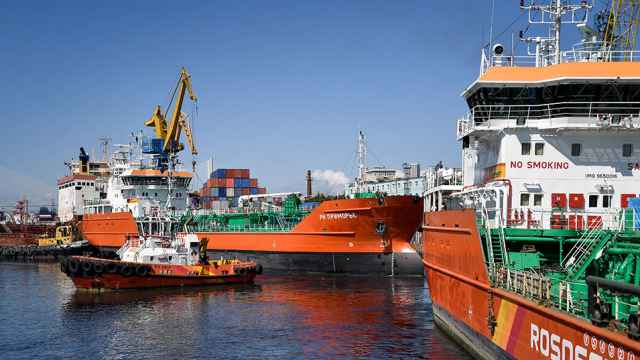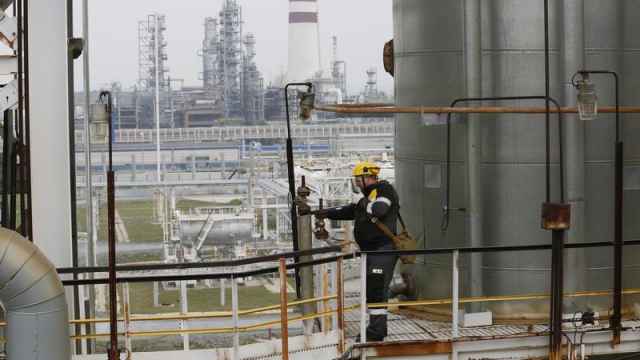Venezuela remains mired in crisis, with the opposition led by National Assembly head Juan Guaido openly challenging President Nicolas Maduro’s legitimacy and calling for the military to support his ouster.
Venezuela’s oil production continues to decline and its people suffer from hunger and insecurity. Yet it seems Venezuelans may no longer be in control of their own fates.
That is certainly the case if U.S. Secretary of State Mike Pompeo and National Security Advisor John Bolton are to believed. In April, the pair alleged Guaido’s attempted uprising was unsuccessful because Russia convinced Maduro not to flee to Cuba.
That claim, combined with the knowledge of Russia’s relationship with Venezuela and America’s intent on achieving regime change in Caracas, raises the question of what the Kremlin’s price is to allow this.
Russia is Venezuela's second-most important creditor, behind only Beijing, and has indeed recently publicly increased its support for Caracas, sending two military aircraft along with some 100 servicemen to the country in March.
Their full-daylight arrival was photographed by local journalists and Moscow publicly acknowledged their presence, sending a clear signal to Washington that there would be repercussions if it intervened directly.
The Trump administration has been threatening to do so for months. More than 3 million Venezuelans have fled the country in recent years.
The violence of Maduro’s regime and its attempts to strip the National Assembly of authority have left it bereft of legitimacy.
Many of those in the U.S. leadership believe in a hawkish version of the Monroe Doctrine, which holds that Washington is the sole power with the authority to intervene in Venezuela’s crises.
Latin America, though, is by no means a new playing field for Moscow. Its ties with Cuba go back to the Soviet Era, a time when the Kremlin fomented various other leftist uprisings and regimes across the region. More recently, it has renewed such links not only with Venezuela, but also with Nicaragua and Bolivia, although it was less successful in Ecuador.
The collapse of the Soviet Union and subsequent decline in Russian naval power made it nearly unthinkable that post-communist Russia would act aggressively in the region, a presumption that is now widely questioned. Recent reports claim that the Russian Navy’s anti-submarine ship Severomorsk is en route to Caracas to further underscore the Kremlin’s willingness to show its strength.
As Guaido’s coup attempt petered out, it is perhaps of little surprise that Trump and Putin moved to hold direct talks on the country’s fate.
Moscow’s sizable investments in Venezuela are the most likely explanation for its commitment to shoring up the Maduro regime. The imagery of standing up to the United States and “protecting sovereignty” are added benefits. Moscow has spent the last few months signaling that it is willing to hold talks over Caracas’ fate while expanding support to Maduro, which would raise American costs in case of U.S. intervention.
Although Russia’s Security Council met on April 30 to discuss events in Venezuela, Russia’s largest investor and true power broker in Venezuela — Rosneft CEO Igor Sechin — has been absent from headlines.
This may change when Rosneft releases its quarterly results on May 13, particularly if the oil giant keeps up the practice it introduced in 2018 of showing its loans to Caracas when making such announcements.
It has been argued that Moscow may recognize Bolton’s calls for renewing the Monroe Doctrine if Washington moves to recognize a similar right for Moscow in Russia’s “near abroad” when Pompeo and Russian Foreign Minister Lavrov meet this week in Helsinki.
To even entertain such talks would be a fateful mistake, and one with devastating consequences for Ukraine and Georgia, among others. Excluding the European Union and NATO from such talks would be disastrous. While the Kremlin would undoubtedly accept any such offer, it would also have to ignore the interests of its main power broker.
Instead, offers should be made along the lines of what Rosneft really wants to gain: continued control over major assets in Venezuela’s oil sector.
If that were to be accompanied by a face-saving political transition, new capital for the country’s hydrocarbon sector and perhaps the potential for sanctions relief, a deal could be in sight.
It would also carry far fewer geopolitical costs than those promulgated by proponents of 21st-century spheres of influence.
A Message from The Moscow Times:
Dear readers,
We are facing unprecedented challenges. Russia's Prosecutor General's Office has designated The Moscow Times as an "undesirable" organization, criminalizing our work and putting our staff at risk of prosecution. This follows our earlier unjust labeling as a "foreign agent."
These actions are direct attempts to silence independent journalism in Russia. The authorities claim our work "discredits the decisions of the Russian leadership." We see things differently: we strive to provide accurate, unbiased reporting on Russia.
We, the journalists of The Moscow Times, refuse to be silenced. But to continue our work, we need your help.
Your support, no matter how small, makes a world of difference. If you can, please support us monthly starting from just $2. It's quick to set up, and every contribution makes a significant impact.
By supporting The Moscow Times, you're defending open, independent journalism in the face of repression. Thank you for standing with us.
Remind me later.



